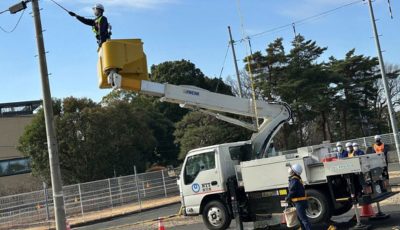Bordallo introduces Compact impact relief bill
The bill establishes a new formula managed by the Department of Health and Human Services, and reviewed by the Department of the Interior, to increase the Federal Medical Assistance Percentage. This change would permit the affected jurisdictions to use the cumulative amount that they have spent to provide social services to COFA migrants toward the non-federal portion of providing Medicaid to local residents. The provision builds on language included by Bordallo in the fiscal year 2011 National Defense Authorization Act that authorizes the government of Guam to use unreimbursed Compact impact toward the purchase of the Navy’s water and wastewater system.
The bill also categorizes elementary and secondary education aged COFA students as federally connected students and make them eligible for Impact Aid funding. Under current law, the federal government provides assistance to help offset the costs incurred by local governments who enroll federally connected children in their school systems. The bill addresses concerns of the Impact Aid community by authorizing additional funding for Impact Aid to account for estimated increases due to including COFA migrants. Bordallo introduced a similar provision in the 112th Congress.
In addition, the bill addresses concerns raised by the Guam Housing and Urban Renewal Authority and would give U.S. citizens, U.S. nationals, and lawful permanent residents priority when receiving federal housing assistance. The bill maintains COFA migrants’ eligibility to receive housing assistance but ensures that U.S. citizens, nationals, and LPRs are not displaced by limited resources when applying for these benefits. This is identical to a similar provision that Bordallo included in the Omnibus Territories Act in the 113th Congress.
Finally, the bill commissions an independent study to research the viability of the current Compacts and make recommendations on policy alternatives moving forward. The study would provide strategic guidance toward renewing the Compacts in 2023 and ensure that they are administered in the best way moving forward.
“Today I introduced legislation to help address the impact of the Compacts of Free Association on jurisdictions like Guam, Hawaii, CNMI, and American Samoa,” said Bordallo. I continue to support the intent of the Compacts, but the costs borne by local governments for providing social services to COFA migrants are unsustainable. Congress must act to provide relief for the affected jurisdictions who have spent millions of local funds to support the Compacts and migrants.
“While I continue to believe that the best solution would be an outright increase to Compact impact—and I am proud to have cosponsored legislation to increase annual mandatory spending to the GAO recommended $185 million—I recognize that the current budget environment makes doing so difficult. The bill that I am introducing provides innovative fixes that would provide much needed relief to our local governments with little cost to taxpayers. This approach is a more budget-friendly way to address this daunting challenge, and I hope that it will help to address concerns that may be raised by fiscally-conservative Republicans.
“I thank Congressman Mark Takai of Hawaii for his support for this bill. I look forward to working with him to advance this bill through the legislative process.”
Takai said: “One of my first bills I introduced when I came to Congress, The Compact-Impact Aid Act of 2015, would increase annual funding for regional migrant costs from $30 million to $185 million. I am happy to work with Congresswoman Bordallo on this legislation to find additional ways to require the federal government to send states like Hawaii money to provide social services and lift the burden on our local populations. When the compacts were enacted, Congress was required by law to address adverse impacts on states and territories—it is time that we take action to do so.” (Office of the Guam Delegate)




























